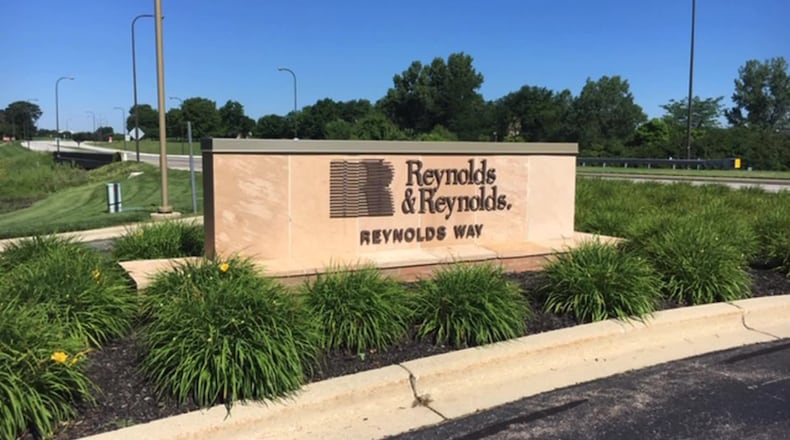Last month, prosecutors in San Francisco announced that a federal grand jury returned a 39-count indictment charging Brockman — the former CEO of Reynolds & Reynolds — with tax evasion, wire fraud, money laundering, and other alleged offenses.
Reynolds is mentioned in the 39-count federal indictment against Brockman, but the company faces no criminal or civil charges or allegations of wrongdoing.
At the time the indictment was made public last month, Brockman was Reynolds' chairman and chief executive. Late last week, Reynolds said Brockman has stepped down from those roles. Tommy Barras, a longtime executive with the company, is now the CEO.
But defense attorney Brian Hayes doubts the government could end up owning any part of the company through forfeiture laws. The chances of that are “low,” he said.
“Criminal forfeiture is tied to the property of the defendant,” Hayes told the Dayton Daily News. “So if the company is not a defendant in the criminal case, forfeiture could not be imposed against the company.”
He added, “Now if the defendant, Mr. Brockman, has an ownership interest, the government could seek to forfeit that as a substitute asset, given the way the indictment reads now.”
A spokesman for Reynolds was adamant Tuesday that Brockman has no ownership stake in the business, which employs more than 1,000 workers on a Miami Valley Research Park campus.
“Mr. Brockman has no role with Reynolds after stepping down as Chairman and CEO,” Reynolds & Reynolds spokesman Thomas Schwartz said in an email to the Dayton Daily News. “Mr. Brockman is not a shareowner in the company.”
Schwartz did not respond to questions about when Brockman relinquished or sold his stake with the company.
A Reynolds spokeswoman told the Dayton Daily News last month that its business will continue.
“The allegations made by the Department of Justice focus on activities Robert Brockman engaged in outside of his professional responsibilities with Reynolds & Reynolds,” said a statement from the company last month. “The company is not alleged to have engaged in any wrongdoing, and we are confident in the integrity and strength of our business.”
The government has not alleged that company property is directly forfeitable, Hayes said. The government cannot generally restrain a defendant’s assets prior to conviction and sentencing, without a seizure order or some kind of authority issued by a court, he said.
There are sometimes cases in which the government will ask a judge to issue a seizure order to control a defendant’s assets.
“As far I can tell from the public record, that doesn’t appear to have happened in this case,” Hayes said.
Other assets, like real estate or vehicles “are easier to forfeit and thus would be more likely substitutes, meaning the chances of the company itself being subject to forfeiture are low," Hayes’s law firm, Chicago-based Holland & Knight, said in a brief mention of the case against Brockman on its web site.
Brockman founded the company that acquired Reynolds & Reynolds 14 years ago.
In 2006, Brockman was a 65-year-old entrepreneur who ran Universal Computer Systems, a Houston company he started in his living room more than three decades before, when he took over what was then a much larger competitor, Dayton-based Reynolds and Reynolds Co., in a $2.8 billion deal.
Brockman took Reynolds to private ownership, and it remains privately held today.
In their indictment last month, federal prosecutors said a Brockman subsidiary, Dealer Computer Services Inc., borrowed $2.4 billion to finance the merger of Universal Computer Systems and Reynolds, paving the way to his ownership of the local company.
About the Author

